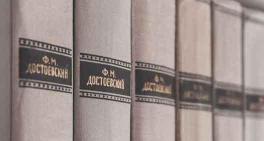Supreme Court adopts new rules for cell phone tracking
Supreme Court News
The Supreme Court says police generally need a search warrant if they want to track criminal suspects’ movements by collecting information about where they’ve used their cellphones. The justices’ 5-4 decision Friday is a victory for privacy in the digital age. Police collection of cellphone tower information has become an important tool in criminal investigations.
The outcome marks a big change in how police can obtain phone records. Authorities can go to the phone company and obtain information about the numbers dialed from a home telephone without presenting a warrant. Chief Justice John Roberts wrote the majority opinion, joined by the court’s four liberals. Roberts said the court’s decision is limited to cellphone tracking information and does not affect other business records, including those held by banks.
He also wrote that police still can respond to an emergency and obtain records without a warrant. Justices Anthony Kennedy, Samuel Alito, Clarence Thomas and Neil Gorsuch dissented. Kennedy wrote that the court’s “new and uncharted course will inhibit law enforcement” and “keep defendants and judges guessing for years to come.”
The court ruled in the case of Timothy Carpenter, who was sentenced to 116 years in prison for his role in a string of robberies of Radio Shack and T-Mobile stores in Michigan and Ohio. Cell tower records that investigators got without a warrant bolstered the case against Carpenter. Investigators obtained the cell tower records with a court order that requires a lower standard than the “probable cause” needed to obtain a warrant. “Probable cause” requires strong evidence that a person has committed a crime.
The judge at Carpenter’s trial refused to suppress the records, finding no warrant was needed, and a federal appeals court agreed. The Trump administration said the lower court decisions should be upheld. The American Civil Liberties Union, representing Carpenter, said a warrant would provide protection against unjustified government snooping. The administration relied in part on a 1979 Supreme Court decision that treated phone records differently than the conversation in a phone call, for which a warrant generally is required.
In a case involving a single home telephone, the court said then that people had no expectation of privacy in the records of calls made and kept by the phone company. That case came to the court before the digital age, and the law on which prosecutors relied to obtain an order for Carpenter’s records dates from 1986, when few people had cellphones. The Supreme Court in recent years has acknowledged technology’s effects on privacy. In 2014, the court held unanimously that police must generally get a warrant to search the cellphones of people they arrest. Other items people carry with them may be looked at without a warrant, after an arrest.
Related listings
-
NY high court nixes Trump's bid to delay defamation suit
Supreme Court News 06/18/2018New York's highest court on Thursday turned down President Donald Trump's latest bid to delay a defamation suit filed by a former "Apprentice" contestant who accused him of unwanted groping and kissing.The ruling by the state Court of Appeals didn't ...
-
Supreme Court allows Ohio, other state voter purges
Supreme Court News 06/13/2018The Supreme Court ruled Monday that states can clean up their voting rolls by targeting people who haven't cast ballots in a while.The justices rejected, by a 5-4 vote Monday, arguments in a case from Ohio that the practice violates a federal law int...
-
Court: Montana minimizes impact of mining near Yellowstone
Supreme Court News 05/25/2018A gold exploration proposal near Yellowstone National Park faced a significant setback as a judge blamed Montana officials for understating the potential for mining to harm land, water and wildlife.The ruling released Friday means the Montana Departm...

Our Eugene Oregon Bankruptcy Practice
Since 2005, Erin Uhlemann has helped individuals and families facing financial difficulties file for bankruptcy relief. Erin's compassion and understanding of the law have helped hundreds of Oregonians achieve a financial fresh start. She started Willamette Valley Bankruptcy to focus on helping clients with bankruptcy and debt issues in the Lane County Area. Erin understands that choosing a bankruptcy attorney who makes you feel comfortable and confident can be as difficult as deciding whether to file a bankruptcy case. Because she knows that filing bankruptcy is not something that you planned to do or look forward to doing, Erin strives to make the process as easy as possible.
Because most people facing bankruptcy do not have extra money to pay fees, Willamette Valley Bankruptcy offers low upfront fees and will work with you to set up affordable payment plans to pay attorney fees and court filing fees. Consultations are always free so that you can get the answers you need before making any sort of financial commitment. If you have questions about attorney fees and payment plans, you can call or email today to get these questions answered.




